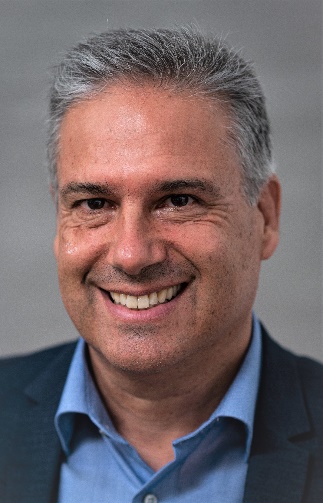Workshop IEEE-VPPC’20, 4 projets européens, 20 Nov. 2020
Le L2EP organise un workshop sur 4 projets européens. Il aura lieu le vendredi 20 novembre de 9h à midi dans le cadre d’IEEE-VPPC’20.

Workshop on
Virtual product development and production of all types of electrified vehicles and components
(within the framework of the H2020 LC-GV-02-2018 call)
9h – 12h,
Registration for this webinar:
https://univ-lille-fr.zoom.us/webinar/register/WN_Ai3SINXcSbaTXPkTUx6TAw
Alain BOUSCAYROL (Univ. Lille, France, PANDA project)
Valentin IVANOV (Tech. Univ. Ilmenau, Germany, XILforEV project)
Reinhard TATSCHL (AVL, Austria, VISION-xEV project)
Enric ARAMBURU (Idiada, Spain, USPCALE project)
Introduction
Many H2020 projects are ongoing on the simulation of electrified vehicles. Four projects have been selected for the call LC-GV-02-20181 (Virtual product development and production of all types of electrified vehicles and components) These calls aim to propose significant advances in digitization leading to new opportunities for the automotive industry in terms of virtual product development and production, reducing the time-to-market of all types of electrified vehicles at lower costs.
This workshop aims to present the objective and recent development of the 4 H2020 of this call:
- PANDA (Powerful Advanced N-Level Digital Architecture for models of electrified vehicles and their components)
- XILforEVs (Connected and Shared X-in-the-loop Environment for EV Development)
- VISION-xEV (Virtual Component and System Integration for Efficient EV Development)
- UPSCALE (Upscaling Product development Simulation Capabilities exploiting Artificial inteLligence for Electrified vehicles)
Provisional schedule
- Gobal context of the call (A. Bouscayrol, V. Invanov, R. Tatchl, E. Aramburu) 15 min
- VISION-xEV presentation (R. Tatschl), 30 min
- PANDA presentation (A. Bouscayrol), 30 min
- XILforEV presentation (V. Ivanov) 30 min
- USPCALE presentation (E. Aramburu) 30 min
PANDA

Name: Powerful Advanced N-Level Digital Architecture for models of electrified vehicles and their components
Framework: Horizon 2020, GV-02-2018, GA # 824256
Coordinator: University of Lille, France URL: https://project-panda.eu/
PANDA aims to reduce the development time of electrified vehicles through standardization of the model/simulation, thereby enabling: 1) an easy reuse of models for different tasks and; 2) a reduction of the real testing of subsystems by virtual seamless testing. The main goal of the PANDA project is to provide unified organisations of digital models for seamless integration in virtual and real testing of all types of electrified vehicles and their components.
XILforEV
 Name: Connected and Shared X-in-the-loop Environment for EV Development
Name: Connected and Shared X-in-the-loop Environment for EV Development
Framework: Horizon 2020, GV-02-2018, GA # 824333
Coordinator: TU Ilmenau, Germany URL: https://xil.cloud/
XILforEV aims to develop a complex experimental environment for designing electric vehicles and their systems, which connects test platforms and setups from different domains and in different geographical locations. The project outcomes cover hardware and software components for x-in the-loop environments, machine learning tools to improve real-time model accuracy and performance as well as high-confidence, real-time capable models with automatic validation using experimental data. The XILforEV technology is demonstrated for four use cases dedicated to the design of brake blending, ride blending, integrated EV chassis control and fail-safe EV powertrain control.
VISION-xEV
![]() Name: Virtual Component and System Integration for Efficient EV Development
Name: Virtual Component and System Integration for Efficient EV Development
Framework: Horizon 2020, GV-02-2018, GA # 824314
Coordinator: AVL, Austria URL: https://vision-xev.eu/
VISION-xEV aims to develop and demonstrate a generic virtual component and system integration framework for the efficient development of all kinds of future electrified powertrain systems. The main goal is to develop novel high-fidelity reduced order models, related parameterization methodologies as well as interfacing and co-simulation methods to enable seamless coupling of models regardless of the underlying modelling platform. The VISION-xEV approach will be demonstrated for selected industrial use-cases related to the virtual development of future electrified powertrain systems..
UPSCALE
 Name: Upscaling Product development Simulation Capabilities exploiting Artificial inteLligence for Electrified vehicles
Name: Upscaling Product development Simulation Capabilities exploiting Artificial inteLligence for Electrified vehicles
Framework: Horizon 2020, GV-02-2018, GA # 824306
Coordinator: IDIADA Automotive Technology SA, Spain
URL: https://www.upscaleproject.eu/
UPSCALE aims to demonstrate the feasibility of using AI enhanced CAE methods in EVdevelopment processes, such as vehicle aerodynamics, battery thermal modelling and crash simulation and leading the deployment of AI tools for other CAE applications. UPSCALE is the first EU-project that has the specific goal to integrate artificial intelligence (AI) methods directly into traditional physics-based Computer Aided Engineering (CAE)-software and –methods.
Biographies
 Alain BOUSCAYROL received Ph.D. degree in Electrical Engineering from Institut National Polytechnique de Toulouse, France, in 1995. From 1996 to 2005, he was Associate Professor at University of Lille, France, where he has been a Professor since 2005.
Alain BOUSCAYROL received Ph.D. degree in Electrical Engineering from Institut National Polytechnique de Toulouse, France, in 1995. From 1996 to 2005, he was Associate Professor at University of Lille, France, where he has been a Professor since 2005.
From 1998 to 2004, he managed the Multi-machine Multi-converter Systems project of GdR-ME2MS, national research program of CNRS (French National Centre of Scientific Research). From 2004 to 2019, he managed the national network on Energy Management of Hybrid Electric Vehicles (MEGEVH) France. Since 2015, he has been coordinator of the CUMIM (Campus of University with Mobility based on Innovation and Neutral carbon) interdisciplinary program of University of Lille. Since 2018, he has been co-director of the international research lab e-CAMPUS on sustainable mobility and also coordinator of PANDA a European H2020 project on simulation and testing of electrified vehicles.
His research include graphical descriptions (Energetic Macroscopic Representation, etc.) for control of electric drives, renewable energy conversion systems, electrified vehicles and hardware-in-the-loop testing. His collaborative works with industry on energy management for vehicles include Siemens, PSA Peugeot Citroen, Valeo, Renault and SNCF. In January 2014, he has been nominated Chair of the Vehicle Power Propulsion technical committee by IEEE Vehicular Technology Society. From 2014 to 2018, he was Associate Editor of IEEE transactions on Vehicular Technology. Since 2016, has been elected Distinguished Lecturer by IEEE VTS.
 Valentin IVANOV received the Ph.D. degree in 1997 and the D.Sc. degree in 2006 in Automotive Engineering from Belarusian National Technical University in Minsk, where he worked successively as Assistant, Associated and Full Professor. In 2007, as a Research Professor, he became an Alexander von Humboldt Fellow and in 2008 a Marie Curie Fellow with Technische Universität Ilmenau, Germany. Currently he is working at TU Ilmenau with the Automotive Engineering Group as the coordinator of several European industrial-academic projects and Marie Skłodowska-Curie Actions.
Valentin IVANOV received the Ph.D. degree in 1997 and the D.Sc. degree in 2006 in Automotive Engineering from Belarusian National Technical University in Minsk, where he worked successively as Assistant, Associated and Full Professor. In 2007, as a Research Professor, he became an Alexander von Humboldt Fellow and in 2008 a Marie Curie Fellow with Technische Universität Ilmenau, Germany. Currently he is working at TU Ilmenau with the Automotive Engineering Group as the coordinator of several European industrial-academic projects and Marie Skłodowska-Curie Actions.
Valentin Ivanov is SAE Fellow, IEEE senior member, member of Society of Automotive Engineers of Japan and the Association of German Engineers. He is a recipient of SAE Ralph R. Teetor Educational Award and CADLM Intelligent Optimal Design Prize. His research fields are vehicle dynamics, electric vehicles, and automotive control systems.
 Reinhard TATSCHL is Research and Technology Manager in the business unit Advanced Simulation Technologies of AVL List GmbH. With about 4300 employees in Austria and more than 11500 worldwide, AVL is the world’s largest independent company for development, simulation and testing technology of all kinds of powertrains for passenger cars, trucks and large engines. Reinhard graduated in Mechanical Engineering and received his PhD at Graz University of Technology. After his studies he joined AVL in 1991 as research engineer in the field of Computational Fluid Dynamics (CFD) modelling and simulation. From 2000 onwards Reinhard was heading the CFD software development team before taking over the current position as Research and Technology Manager in 2012.
Reinhard TATSCHL is Research and Technology Manager in the business unit Advanced Simulation Technologies of AVL List GmbH. With about 4300 employees in Austria and more than 11500 worldwide, AVL is the world’s largest independent company for development, simulation and testing technology of all kinds of powertrains for passenger cars, trucks and large engines. Reinhard graduated in Mechanical Engineering and received his PhD at Graz University of Technology. After his studies he joined AVL in 1991 as research engineer in the field of Computational Fluid Dynamics (CFD) modelling and simulation. From 2000 onwards Reinhard was heading the CFD software development team before taking over the current position as Research and Technology Manager in 2012.
 Enric ARAMBURU is the IDIADA Fluid Engineering Product Manager and the Body Development department R+D manager. He holds a Mechanical Engineering degree and a Master in Numerical Methods applied to. His current responsibility is related with business development of the aerodynamics & CFD services within IDIADA. Mr. Aramburu has been working in the automotive industry for more than 25 years, as CFD engineer in companies such as SEAT, Simulogica or SENER Ingenieria & Sistemas. He joined IDIADA in 2004 and has participated in several R+D projects, such as, Supercalculus, Sartre, Convenient, Companion, Resolve, Domus, Cronuz or UPSCALE (project coordinator) and has been involved in more that 50 vehicle development programs with different automotive OEMs, such as, SEAT, AUDI, SKODA, GEELY, PSA Group, TOYOTA, TATA, GEELY, NISSAN, NIO, CNH-I, MAN, etc.. Besides his responsibilities as owner of the Fluid Engineering product, Mr. A is coordinating the Innovation activities within the Body Development department.
Enric ARAMBURU is the IDIADA Fluid Engineering Product Manager and the Body Development department R+D manager. He holds a Mechanical Engineering degree and a Master in Numerical Methods applied to. His current responsibility is related with business development of the aerodynamics & CFD services within IDIADA. Mr. Aramburu has been working in the automotive industry for more than 25 years, as CFD engineer in companies such as SEAT, Simulogica or SENER Ingenieria & Sistemas. He joined IDIADA in 2004 and has participated in several R+D projects, such as, Supercalculus, Sartre, Convenient, Companion, Resolve, Domus, Cronuz or UPSCALE (project coordinator) and has been involved in more that 50 vehicle development programs with different automotive OEMs, such as, SEAT, AUDI, SKODA, GEELY, PSA Group, TOYOTA, TATA, GEELY, NISSAN, NIO, CNH-I, MAN, etc.. Besides his responsibilities as owner of the Fluid Engineering product, Mr. A is coordinating the Innovation activities within the Body Development department.
Soutenance de thèse, Duc Tan VU, 24 Nov. 2020
Soutenance de thèse, Adham KALOUN, 4 Déc. 2020







